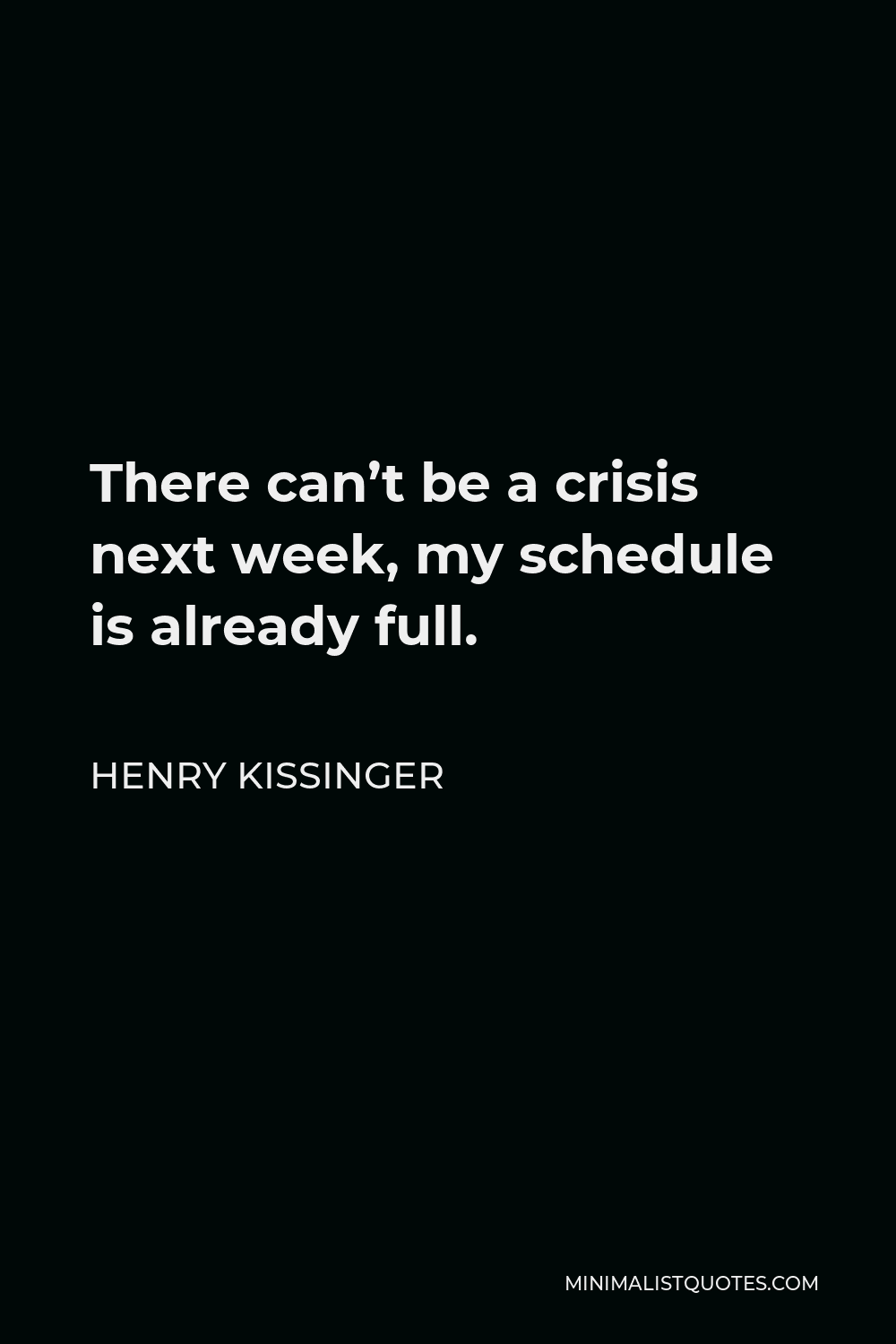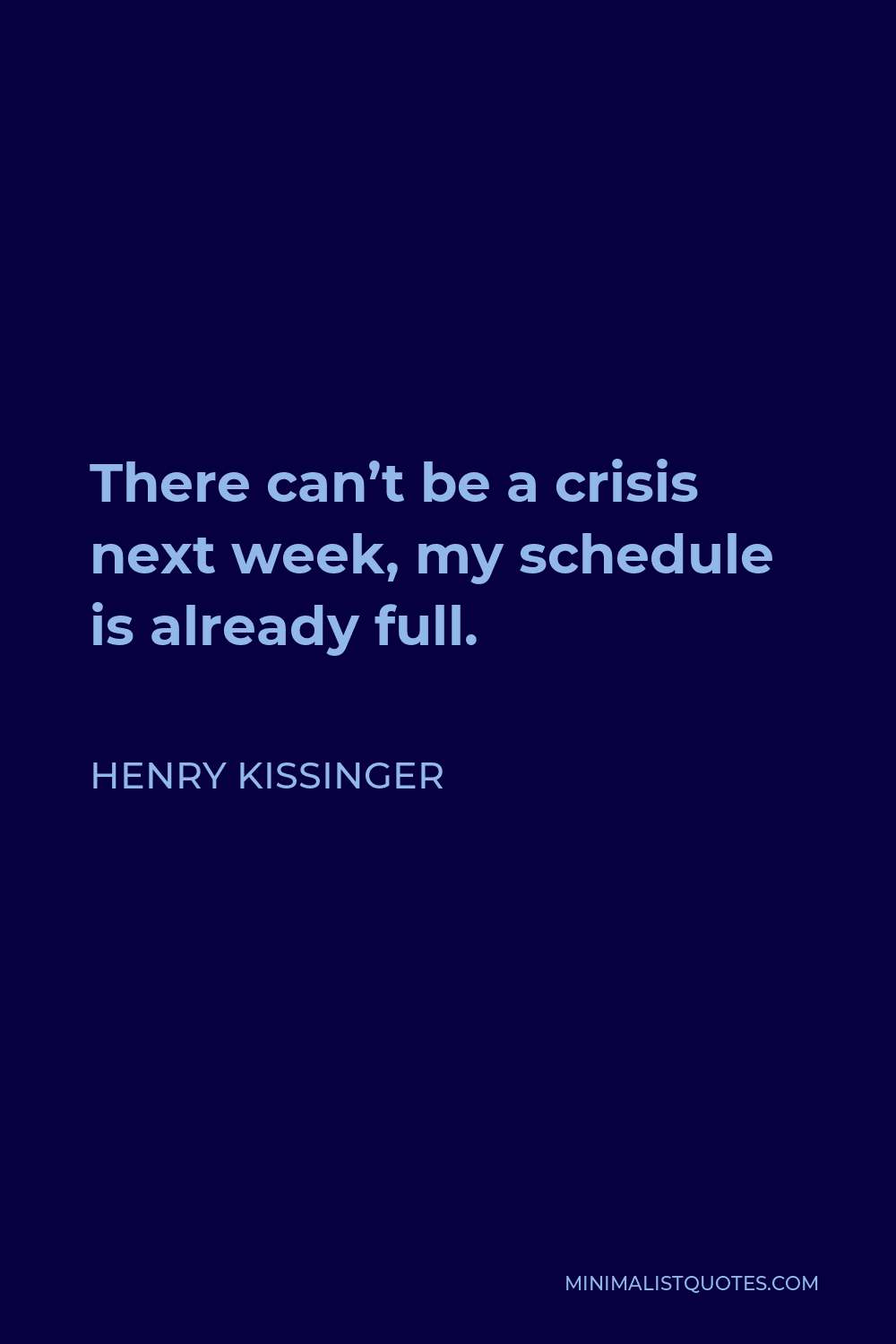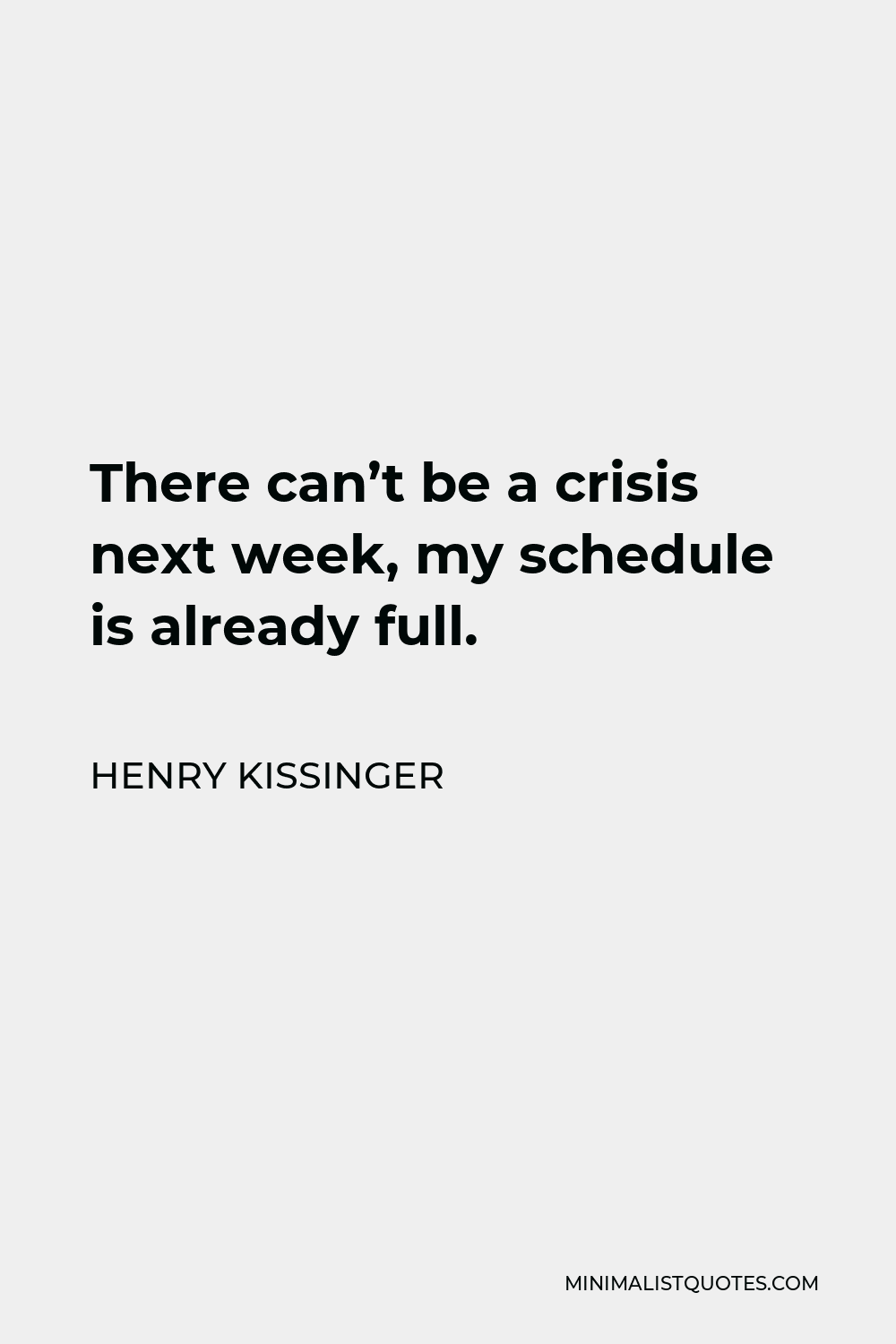A Harvard study has shown that in fifteen cases in history where a rising and an established power interacted, ten ended in war.
HENRY KISSINGERThere can’t be a crisis next week, my schedule is already full.
More Henry Kissinger Quotes
-





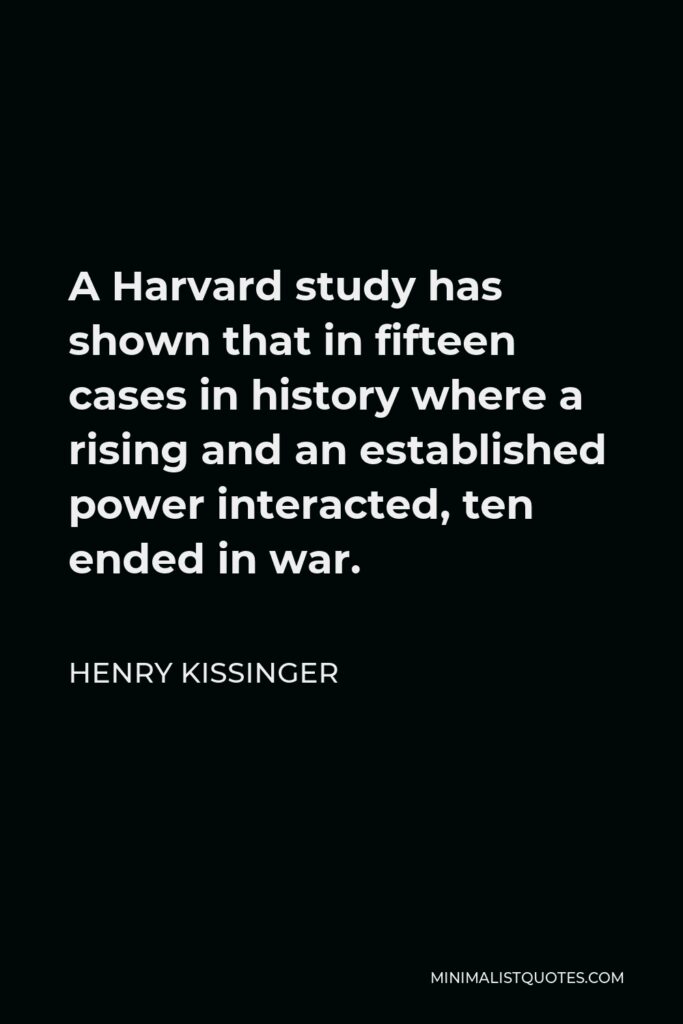

-





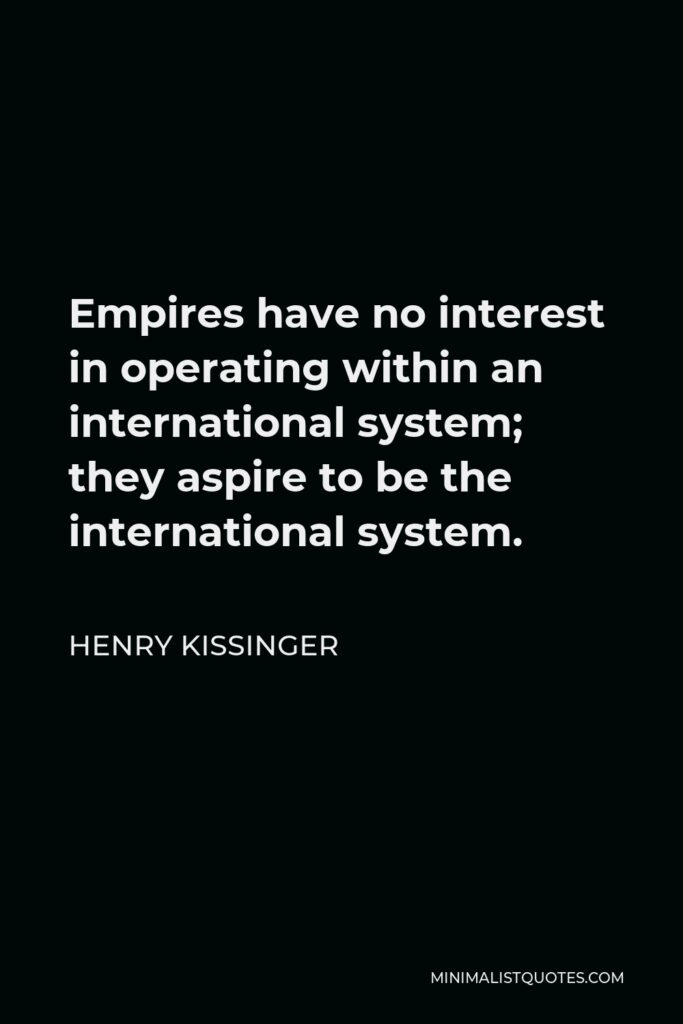

Empires have no interest in operating within an international system; they aspire to be the international system.
HENRY KISSINGER -







The nice thing about being a celebrity is that if you bore people they think it’s their fault.
HENRY KISSINGER -





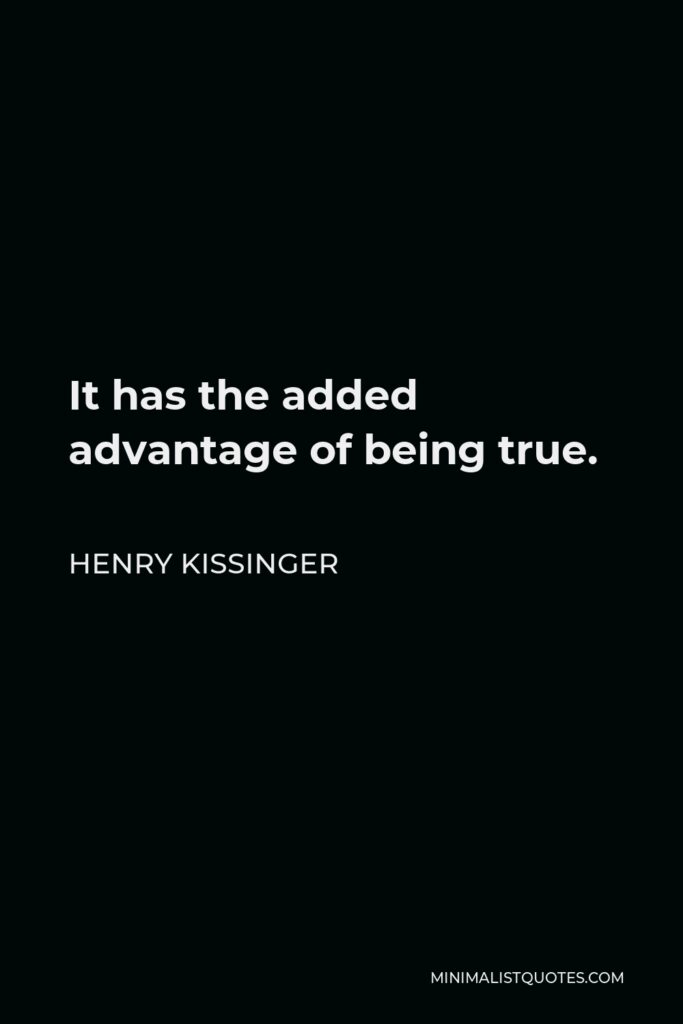

It has the added advantage of being true.
HENRY KISSINGER -





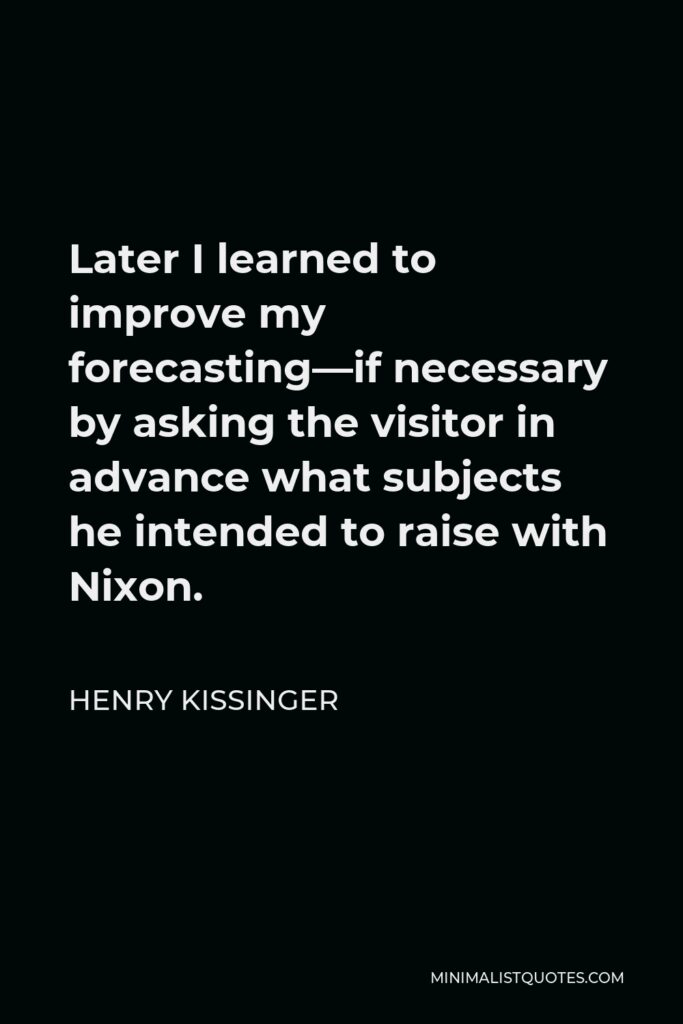

Later I learned to improve my forecasting—if necessary by asking the visitor in advance what subjects he intended to raise with Nixon.
HENRY KISSINGER -





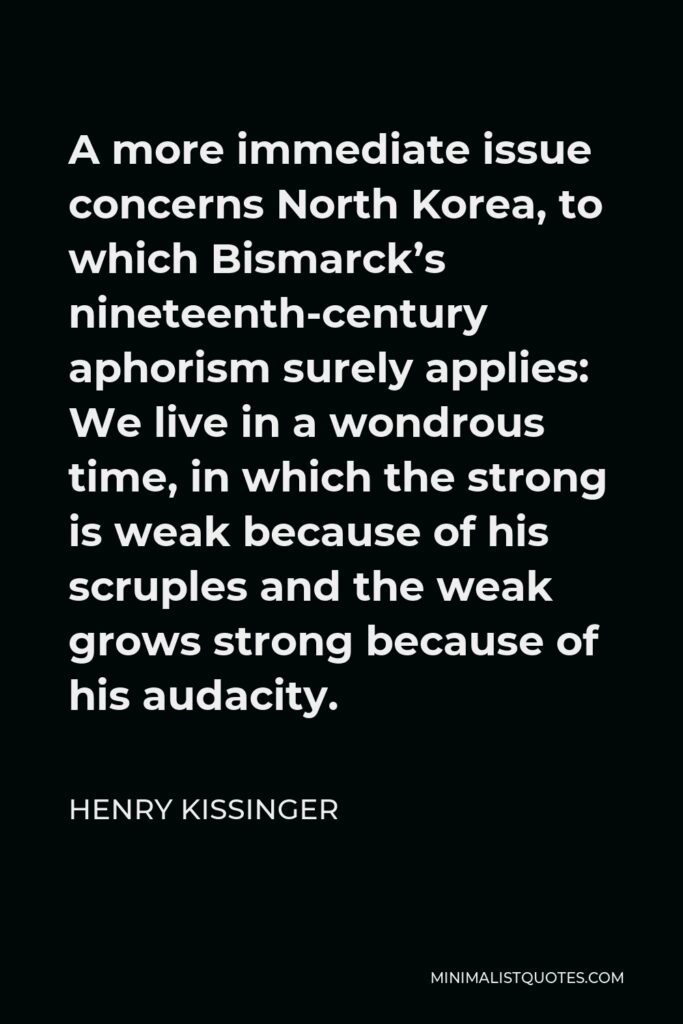

A more immediate issue concerns North Korea, to which Bismarck’s nineteenth-century aphorism surely applies: We live in a wondrous time, in which the strong is weak because of his scruples and the weak grows strong because of his audacity.
HENRY KISSINGER -





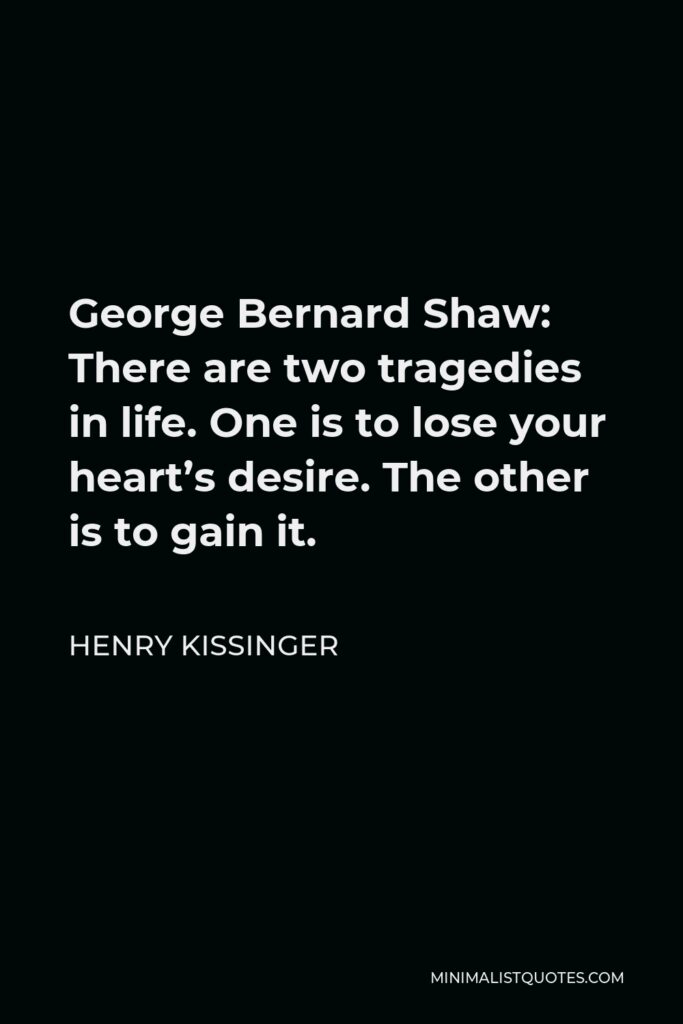

George Bernard Shaw: There are two tragedies in life. One is to lose your heart’s desire. The other is to gain it.
HENRY KISSINGER -





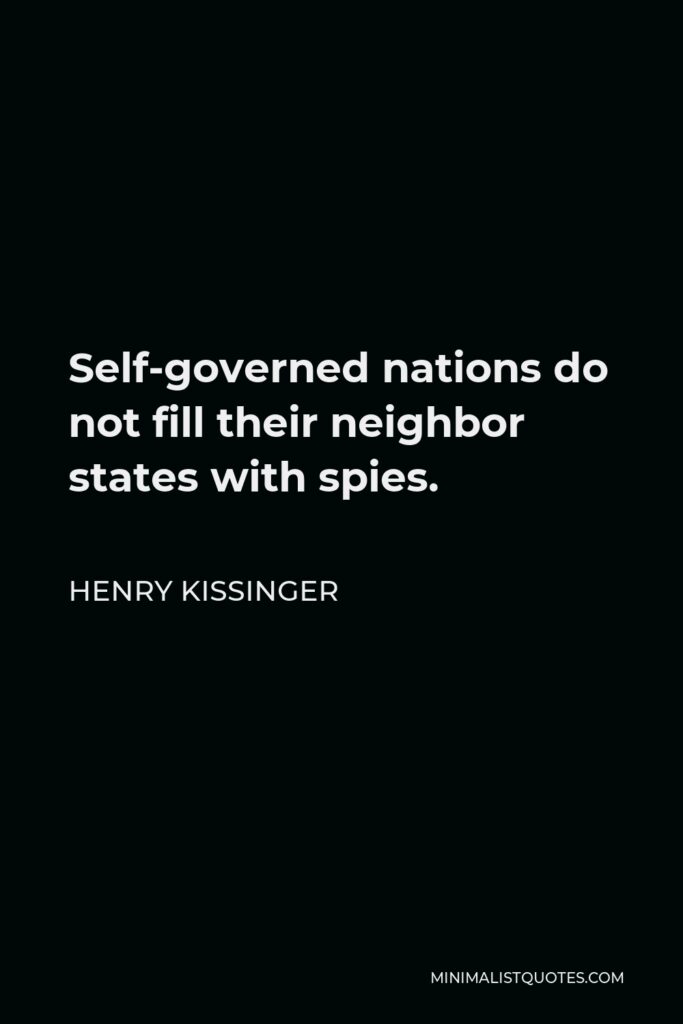

Self-governed nations do not fill their neighbor states with spies.
HENRY KISSINGER -







To undertake a journey on a road never before traveled requires character and courage: character because the choice is not obvious; courage because the road will be lonely at first. And the statesman must then inspire his people to persist in the endeavor.
HENRY KISSINGER -





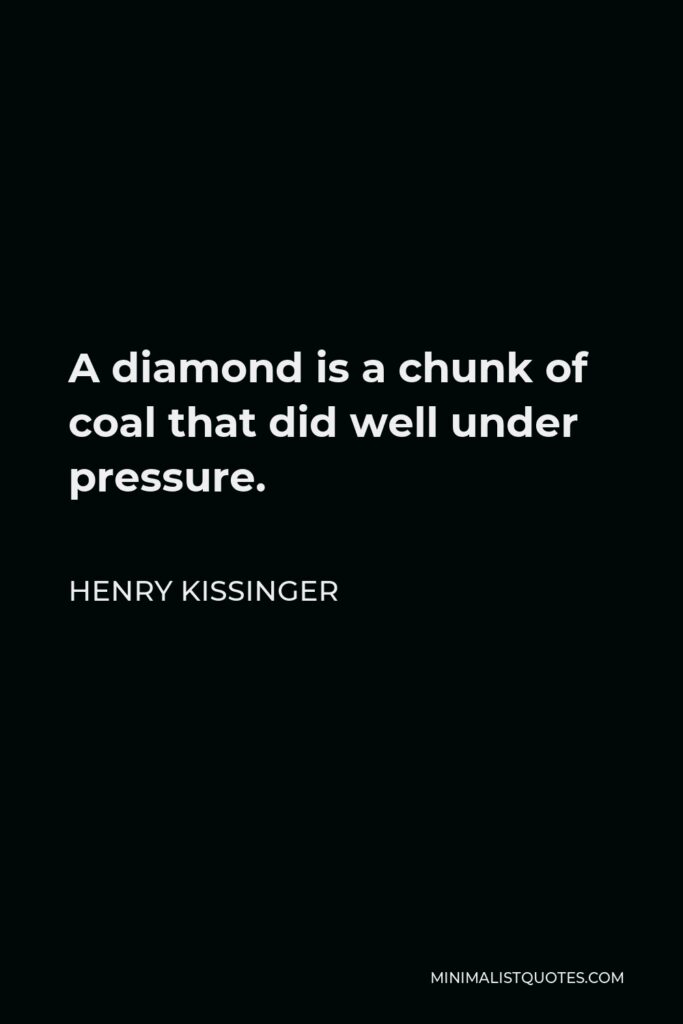

A diamond is a chunk of coal that did well under pressure.
HENRY KISSINGER -







Power is the ultimate aphrodisiac.
HENRY KISSINGER -





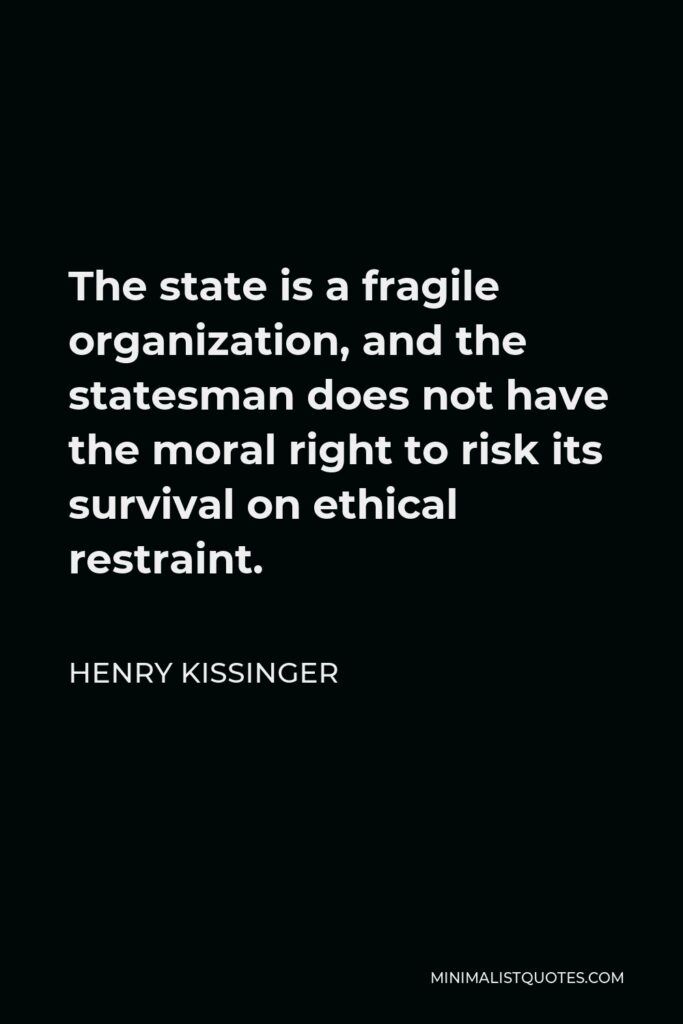

The state is a fragile organization, and the statesman does not have the moral right to risk its survival on ethical restraint.
HENRY KISSINGER -





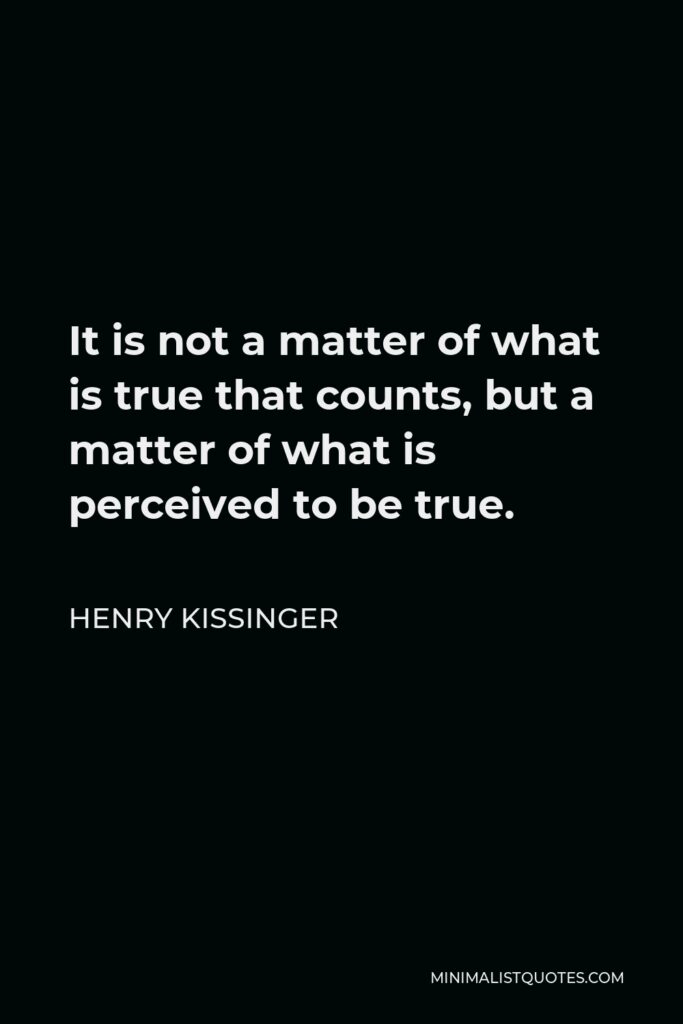

It is not a matter of what is true that counts, but a matter of what is perceived to be true.
HENRY KISSINGER -





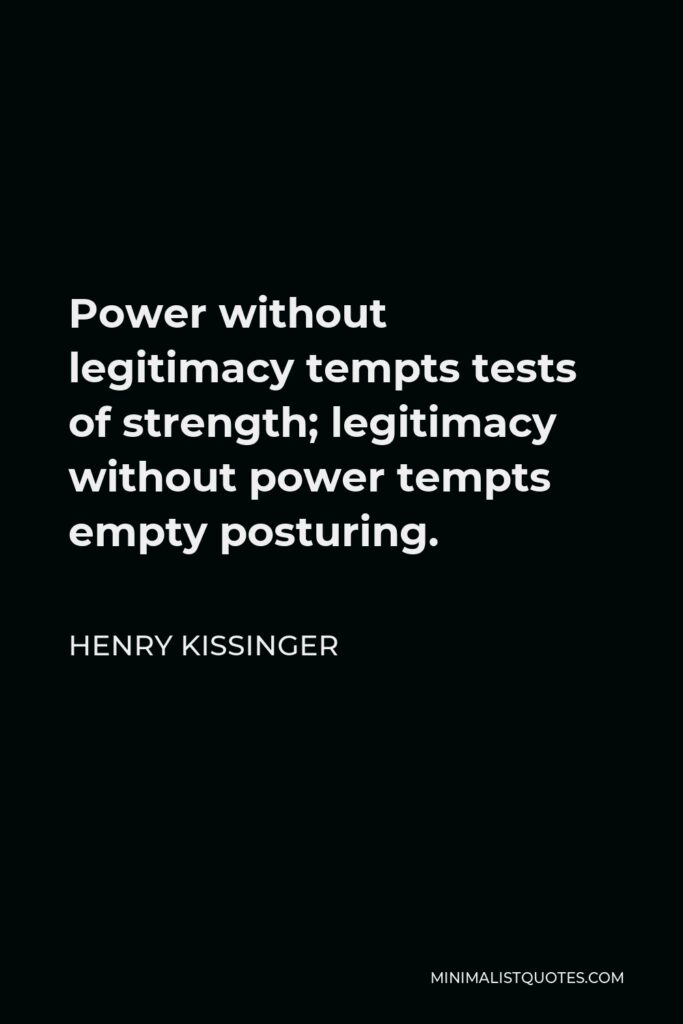

Power without legitimacy tempts tests of strength; legitimacy without power tempts empty posturing.
HENRY KISSINGER -





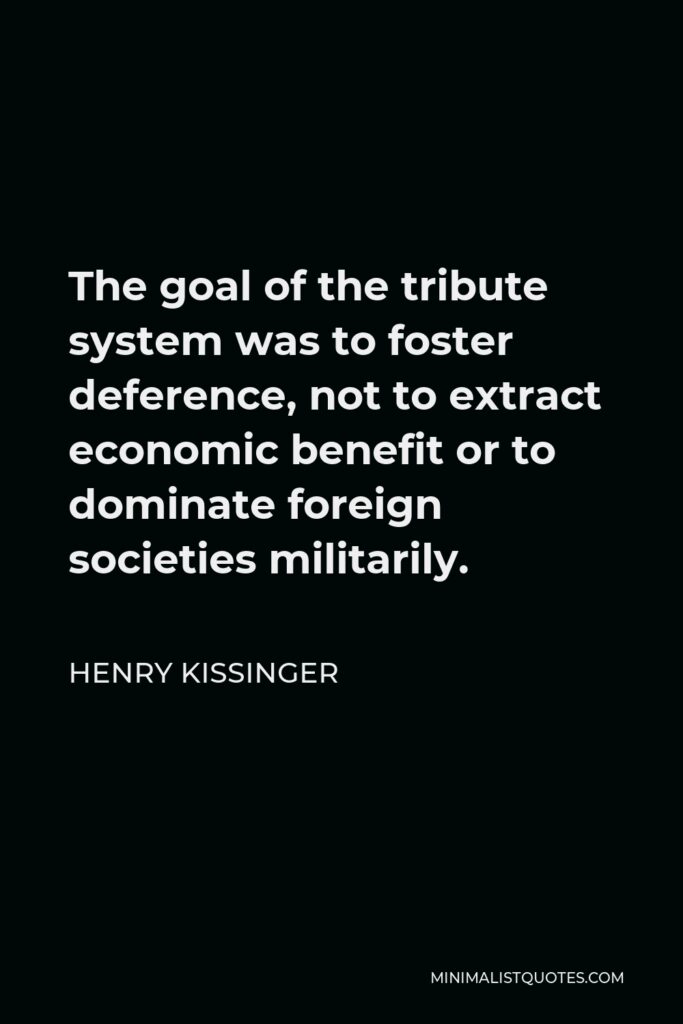

The goal of the tribute system was to foster deference, not to extract economic benefit or to dominate foreign societies militarily.
HENRY KISSINGER -





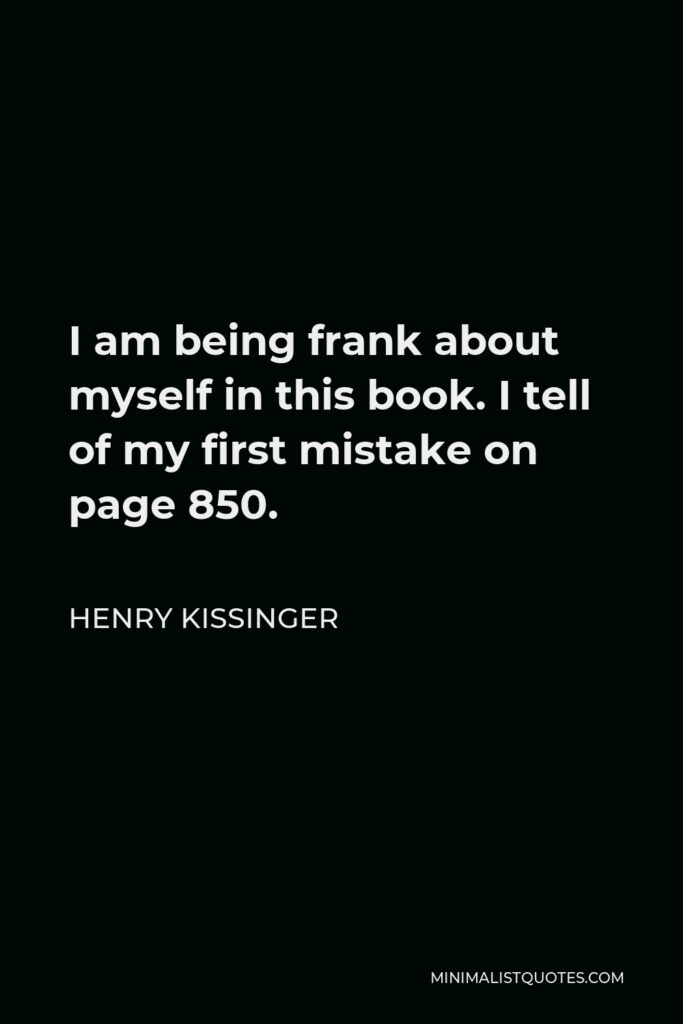

I am being frank about myself in this book. I tell of my first mistake on page 850.
HENRY KISSINGER
